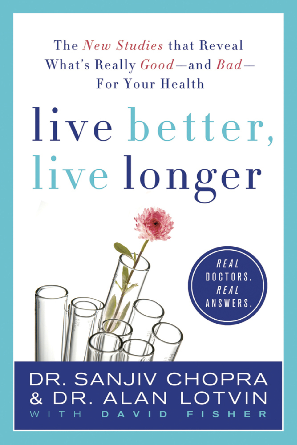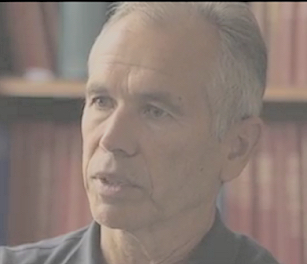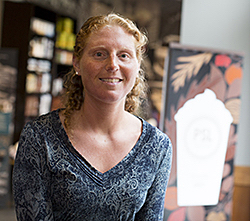Coffee Drinking Lowers Risk Of Parkinson’s, Type 2 Diabetes, Five Cancers, And More – Harvard Researchers

Harvard University Staff Writer Alvin Powell reports that Harvard scientists have had coffee under the microscope for years, and last year announced the discovery of six new human genes that relate to coffee, reconfirming existence of two others previously identified. The long-running Harvard Nurses Health Study has found that coffee has protective qualities against type 2 diabetes and cardiovascular disease, and investigators are revisiting a 2001 study finding that it can also protect against Parkinson’s disease.
Powell notes that this research at Harvard is just part of an emerging body of evidence that coffee is a potentially powerful biochemical agent against a range of ailments, from cancer to dental caries.
 Powell cites Sanjiv Chopra, a professor of medicine at Harvard Medical School and Harvard-affiliated Beth Israel Deaconess Medical Center, saying he has been so impressed by these revelations that he’s become something of a “coffee evangelist.” Dr. Chopra included a chapter on coffee in his 2010 book, Live Better, Live Longer, in which he tells his readers that by drinking coffee “You’re doing your liver a big favor [and] coming from me, a liver specialist, that is high praise indeed.” Dr. Chopra acknowledges that in the past, drinking too much coffee had been supposedly linked to a variety of health problems including heart attacks, birth defects, pancreatic cancer, osteoporosis, and miscarriages, and says we do know coffee can cause insomnia, tremors, raise blood pressure and increase urination. However, he maintains that “more recent evidence indicates that rather than being dangerous, coffee may also offer substantial benefits, including protection against heart disease, Type 2 diabetes, liver cirrhosis, Parkinson’s disease, cavities, colon cancer, prostate cancer, and even suicide. It is known to bring relief for asthma, increase endurance and concentration… and increase the absorption of other medications…. And contrary to conventional wisdom, it appears to lower the risk of being hospitalized for an arrhythmia.”
Powell cites Sanjiv Chopra, a professor of medicine at Harvard Medical School and Harvard-affiliated Beth Israel Deaconess Medical Center, saying he has been so impressed by these revelations that he’s become something of a “coffee evangelist.” Dr. Chopra included a chapter on coffee in his 2010 book, Live Better, Live Longer, in which he tells his readers that by drinking coffee “You’re doing your liver a big favor [and] coming from me, a liver specialist, that is high praise indeed.” Dr. Chopra acknowledges that in the past, drinking too much coffee had been supposedly linked to a variety of health problems including heart attacks, birth defects, pancreatic cancer, osteoporosis, and miscarriages, and says we do know coffee can cause insomnia, tremors, raise blood pressure and increase urination. However, he maintains that “more recent evidence indicates that rather than being dangerous, coffee may also offer substantial benefits, including protection against heart disease, Type 2 diabetes, liver cirrhosis, Parkinson’s disease, cavities, colon cancer, prostate cancer, and even suicide. It is known to bring relief for asthma, increase endurance and concentration… and increase the absorption of other medications…. And contrary to conventional wisdom, it appears to lower the risk of being hospitalized for an arrhythmia.”
Powell notes that Dr. Chopra first became aware of the potentially powerful protective effects of coffee when a study revealed that consumption lowers levels of liver enzymes and protects the liver against cancer and cirrhosis. When he began asking students, residents, and colleagues on the liver unit to quiz patients about their coffee habits, they found consistently that none of the patients with liver ailments were coffee drinkers.
Dr. Chopra personally drinks several cups of coffee a day, and encourages others to do likewise, and while other researchers are more conservative in their dietary recommendations, they’re convinced enough to continue investigations into coffee’s health benefits.
 Meanwhile, Professor of Epidemiology and Nutrition at the Harvard T.H. Chan School of Public Health and professor of medicine at Harvard Medical School Alberto Ascherio, a has been studying coffee’s potential anti-Parkinson’s effects that were first suggested in the 2001 study’s findings. That study, of which Dr. Ascherio was lead author, showed that drinking four or five cups of coffee daily cut risk of developing Parkinson’s Disease nearly in half compared with little or no caffeine consumption.
Meanwhile, Professor of Epidemiology and Nutrition at the Harvard T.H. Chan School of Public Health and professor of medicine at Harvard Medical School Alberto Ascherio, a has been studying coffee’s potential anti-Parkinson’s effects that were first suggested in the 2001 study’s findings. That study, of which Dr. Ascherio was lead author, showed that drinking four or five cups of coffee daily cut risk of developing Parkinson’s Disease nearly in half compared with little or no caffeine consumption.
The study was published in the journal Annals of Neurology, entitled “Prospective study of caffeine consumption and risk of Parkinson’s disease in men and women” (Ann Neurol. 2001 Jul;50(1):56-63) coauthored by Dr. Ascherio with S.M. Zhang, M.A. Hernn, I. Kawachi, G.A. Colditz, F.E. Speizer, and W.C. Willett, who noted that while results of case-control studies and a prospective investigation suggest that coffee consumption could protect against Parkinson’s disease (PD) risk, the active constituent is unclear, so to address the hypothesis that caffeine is protective against Parkinson’s disease, they examined the relationship of coffee and caffeine consumption to the risk of PD among participants in two ongoing cohorts, the Health Professionals’ Follow-Up Study (HPFS) and the Nurses’ Health Study (NHS). The study population comprised 47,351 Parkinson’s disease free men and 88,565 women who were also free of, stroke, or cancer at baseline. A comprehensive lifestyle and dietary questionnaire was completed by study participants at baseline and updated every two to four years. During the follow-up (10 years in men, 16 years in women), the investigators documented a total of 288 incident cases of Parkinson’s disease. Among men, after adjustment for age and smoking, relative risk of Parkinson’s disease was 0.42 for men in the top one-fifth of caffeine intake compared to those in the bottom one-fifth. An inverse association was also observed with consumption of coffee, caffeine from noncoffee sources , and tea but not for decaffeinated coffee. Among women, the relationship between caffeine or coffee intake and risk of Parkinson’s disease was U-shaped, with lowest risk observed at moderate intakes (1-3 cups of coffee/day, or the third quintile of caffeine consumption) — results that support a possible protective effect of moderate doses of caffeine on Parkinson’s disease risk.
Powell says that currently the Harvard research group’s focus is on identification of causes, risk factors (positive and negative), biomarkers of susceptibility and early diagnosis of multiple sclerosis (MS), Parkinson’s disease, and Amyotrophic Lateral Sclerosis (ALS). Due to of their progressive and disabling nature, these diseases inflict major adverse personal, social, and economic consequences on persons who develop them, with prevention and early detection critical, because there are no cures for any of these neuromuscular disorders and clinical diagnoses typically occur after substantial and often irreversible neuronal loss has been incurred, at which point any neuroprotective interventions applied will probably be too late to be fully effective.
Powell reports that Harvard Professor of Nutrition and Epidemiology and Professor of Medicine Frank Hu, who leads the diabetes section of the long-running Nurses Health Study, has also become interested in whether coffee drinking affects total mortality. “I’m not a huge coffee drinker, two to three cups a day, Hu said. [But] I like it and, thinking about the extra benefits, thats comforting.
In a Harvard video entitled “How Coffee Loves Us Back” Dr. Ascherio says coffee drinkers have an approximately 10 to 15 percent lower mortality rate, which he attributes to the antioxidant and anti-inflammatory chemicals in coffee, such as chlorogenic acid which is one of the richest antioxidants. Dr. Chopra observes that coffee consumption seems to diminish the risk of developing five different types of cancer, and the positive effect is not realized from the caffeine content in tea, so it’s “something about coffee,” and says if you start with half a cup a day and work yourself up to two cups, “you’re all set.”
 Powell notes that last year, a team led by then research associate at the Harvard T.H. Chan School of Public Health Marilyn Cornelis, who is currently an assistant professor at Northwestern University’s Feinberg School of Medicine, traced coffee’s relationship to the human genome, discovering the six new genes related to coffee consumption and reconfirming two others found earlier referred to above. The six genes included two related to metabolism, two related to coffee’s psychoactive effects, and two whose exact purpose in coffee consumption is unclear, presenting a possible avenue of investigation, but which are related to lipid and glucose metabolism.
Powell notes that last year, a team led by then research associate at the Harvard T.H. Chan School of Public Health Marilyn Cornelis, who is currently an assistant professor at Northwestern University’s Feinberg School of Medicine, traced coffee’s relationship to the human genome, discovering the six new genes related to coffee consumption and reconfirming two others found earlier referred to above. The six genes included two related to metabolism, two related to coffee’s psychoactive effects, and two whose exact purpose in coffee consumption is unclear, presenting a possible avenue of investigation, but which are related to lipid and glucose metabolism.
The findings were published last year in the journal Molecular Psychiatry in a paper entitled “Genome-wide meta-analysis identifies six novel loci associated with habitual coffee consumption” (Molecular Psychiatry 20, 647-656 (May 2015) | doi:10.1038/mp.2014.107). in which The Coffee and Caffeine Genetics Consortium coauthors note that they conducted a genome-wide (GW) meta-analysis of predominately regular-type coffee consumption (cups per day) among up to 91,462 coffee consumers of European ancestry with top single-nucleotide polymorphisms (SNPs) followed-up in 30,062 and 7964 coffee consumers of European and African-American ancestry, respectively. Studies from both stages were combined in a trans-ethnic meta-analysis, and the investigators report that genetic findings among European and African-American adults reinforce the role of caffeine in mediating habitual coffee consumption and may point to molecular mechanisms underlying inter-individual variability in pharmacological and health effects of coffee.
In another Harvard report, Dr. Cornelis says that while there has been disagreement over coffee’s health effects in the past, evidence of its benefits has been mounting, so much so that she herself, who says she hates the taste of coffee, has been persuaded to try cultivating the habit. You can find out more about Dr. Cornelis’s research on health effects of coffee here.
Daniel Chasman, an associate professor of medicine at Harvard Medical School and an associate geneticist at Harvard-affiliated Brigham and Womens Hospital, who worked with Dr. Cornelis on the study, said caffeine consumption habits are highly heritable and that the genes they found appear to explain about 7 percent of the heritability. Thats a significant amount, he said, considering how strong an influence culture also plays on coffee consumption.
Powell concludes that while the links between coffee and better health are becoming considerably clearer, the exact agent or agents that confer the benefit remain an unanswered question, but caffeine alone does not explain the effects, not least because some of the benefits are seen even with decaf, prompting researchers to focus attention on the many other active bioactive compounds in your morning cup.
Other findings of Harvard research on coffee include a 2005 study that found no link between higher blood pressure and coffee and actually some suggestion that it lowers blood pressure, and a 2011 study that found regular coffee drinking was linked to lower prostate cancer risk. Another
2011 study showed that drinking four or more cups of coffee daily lowered rates of depression among women, while a 2012 study linked three cups a day coffee consumption to a 20 percent lower risk of basal cell carcinoma, and a 2013 Harvard study linked coffee consumption to reduced suicide risk.
A 2013 Harvard meta analysis of 36 studies covering more than a million people found that even heavy coffee consumption did not increase risk of cardiovascular disease and that drinking three to five cups of coffee daily provided the most protection against cardiovascular disease.
Finally, in 2014, Harvard Chan School researchers found that increasing coffee consumption by more than a cup a day over a four-year period reduced type 2 diabetes risk by 11 percent, and that those who decreased their coffee consumption by more than a cup a day increased their type 2 diabetes risk by 17 percent.
Sources:
Harvard Gazette
Live Better, Live Longer – Sanjiv Chopra
Annals of Neurology
Northwestern University Feinberg School of Medicine






